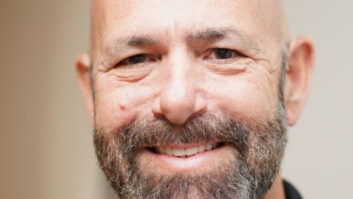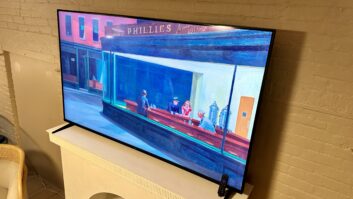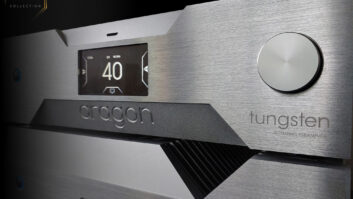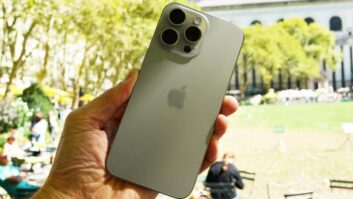Nearly two decades since the launch of Dish Network’s first satellite, the company’s maverick founder Charlie Ergen shows no signs of slowing down in his quest to keep the company relevant.
Last year, Ergen laid out a plan for the next 10 years that included transforming Dish into a one-stop shop for the delivery of video content via satellite and the Internet to the home and on the go. And he wasted little time trying to make that happen.
Ergen became one of TWICE’s 2013 Top Newsmakers of the Year by leading an aggressive campaign to first acquire a 25 percent stake in wireless broadband provider Clearwire, and after that bid faced opposition from mobile communications behemoth Sprint Nextel, turned around and tried to acquire them.
Ultimately, Dish dropped its bid for Sprint in June after Japan’s Soft- Bank increased an offer to buy the third-largest U.S. wireless carrier. SoftBank chipped in $21.5 billion to merge with Sprint on July 10, one day after Sprint completed its acquisition of the remaining shares of Clearwire.
Undeterred, Ergen vowed to continue his efforts to find a physical network for Dish’s stockpile of airwaves for mobile video services throughout the U.S.
The Dish chairman said he would entertain almost any scenario to complete his goal, including “selling our company, merging, partnering – those are all on the table.”
He even listed key rivals Sprint and DirecTV as potential partners.
In addition, Ergen said that buying Sprint’s smaller rival T-Mobile U.S. is still “on the table.”
Meanwhile, Dish continues its attempts to add to its wireless spectrum holdings. During the year, the satellite- TV provider made a controversial offer to buy wireless broadband company LightSquared’s airwaves out of bankruptcy for $2.2 billion.
But the LightSquared bid ran into a potentially troublesome legal log jam. LightSquared sued Ergen for the alleged illegal purchase of $1 billion in LightSquared debt before Dish bid on the company’s assets.
According to LightSquared, Ergen’s purchase of the debt was done on behalf of Dish and not himself, violating a provision of LightSquared’s credit agreement that prohibits competitors from buying debt.
Dish called the lawsuit “frivolous” and an “elaborate distraction designed to shift attention from years of LightSquared mismanagement leading to bankruptcy.”
Later, Ergen was hit with a shareholder derivative suit accusing him of using an investment vehicle to quietly purchase the debt of LightSquared, which had assets desirable to Dish, for his own financial gain. But a Las Vegas district court judge ruled that the shareholders presented “no evidence and no coherent legal theory of irreparable harm” to bar Ergen and other Dish directors from participating in the bid for LightSquared assets.
Ergen has also said he plans to bid for more spectrum in a government auction of the so-called H-Block in January 2014 for at least $1.56 billion.
In recent public comments, Ergen said the frenetic pace of his attempts to amass spectrum and solidify a wireless communications framework is dictated by a need to stay ahead of changing trends.
“The technology continues to change. There’s a certain point in time when the way that you would do towers and the core and handsets – that technology is changing dramatically,” said Ergen. “And so you want to hit the right timing on that. And I like where we are. And it’s an asset that I think continues to increase in value on our balance sheet. And I think it helps us potentially transform the company going forward because we know we’re in a mature business. We know our core business is a mature business.”
Ergen added that Dish also faces some pending deadlines to reach certain milestones.
“You have three big processes ahead of us in the next several months. One is the LightSquared bankruptcy, where we’re a stalking-horse bidder. Second, we have an H-Block auction where we’re going to be a participant and bid a minimum of $1.5 billion. And third, we have a waiver request in front of the FCC to convert — give us the option to convert all of our spectrum to downlink … Each one of those things, if it happens, will give us some more optionality and may send us down a different course.
“Strategy, in my opinion, is all about putting yourself in a position that has optionality,” he said.
As for Dish’s core TV business, Ergen said president and CEO Joseph Clayton’s team is doing a good job with a mature technology model, and that Dish will continue to improve its video-centric posture while striving to keep the core service vital to subscribers.
One such method was the development of the whole-home Hopper DVR and its controversial Auto- Hop commercial-skipping feature.
Ergen said Dish will continue to fight the broadcast networks that have brought legal actions to block the system, and to include the right to continue to offer it in future retransmission agreements.
“Obviously, everybody’s got a DVR that can skip commercials,” Ergen pointed out in recent comments. “I think the fact that what we really are trying to get broadcasters to think about is that people are going to skip commercials. Isn’t there a better way? Let’s recognize that fact. And if you recognize the fact that people are going to skip commercials when they play things back on a DVR, is there a better way for us to go about monetizing that, that is fair to the customer but actually monetizes that in a way for you, the broadcaster, who needs a dual income stream? … The Hopper, as it turns out, has built-in technology that can target commercials to customers and give the customer a better experience.”













